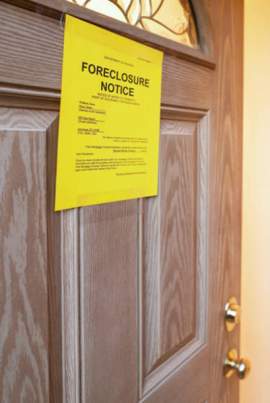
Eviction Process in California

Popular In Foreclosure
Deed In Lieu Of Foreclosure Stop Foreclosure Pre Foreclosure Protecting Tenants At Foreclosure Act Of 2009 Deed In Lieu Of Foreclosure Maryland Avoid Foreclosure Foreclosure Help Eviction Process In Missouri Eviction Process In Alabama Foreclosure Process Short Sale Deed In Lieu Of Foreclosure Ohio
Guide to the Eviction Process in California
If you are being evicted in the state of California, you may not know how to proceed. Learning about the eviction process in California can help you understand your rights and options under the law. After reading this guide, you will understand the steps involved in the eviction process in California and how long each step will take.
Getting Notice
Before eviction proceedings can begin in earnest, the eviction process in California starts with your landlord giving you notice about a potential eviction. If you are late in paying rent, you will be given a three day notice to either pay your delinquent rent or vacate the residence. You can pay rent plus whatever applicable late fees your landlord requests in order to avoid the eviction process in California continuing, if you are given this kind of notice.
Another kind of notice you may receive from a landlord is a three day notice to perform. This notice informs you about a breach of your lease other than late rent payment, and gives you three days to correct the problem. For instance, if you were subletting property illegally, your landlord may give you a three day notice to perform.
If you cannot or do not make the requested changes according to your lease agreement, your landlord can begin the next step of the eviction process in California. Your landlord may also give you a 3-day notice to vacate if you are creating a nuisance on the premises, and does not have to give you an opportunity to cure the breach if you are creating a nuisance.
Court Filings and Hearings
The next step of the eviction process in California is a court filing. Your landlord will file a complaint and summons with the superior court and serve you a copy of the summons and complaint. If you do not respond to the summons in writing within five days, your landlord will win the eviction lawsuit by default.
If you choose to respond to the complaint, a hearing will be scheduled with a judge. If the landlord has failed to comply with terms of the lease, you may be able to win your case and not be evicted. Eviction lawsuits are called “unlawful detainer” suits in California, and if your landlord wins the case, you will be served with a copy of the judgment and told how long you have until the sheriff may forcibly remove you from your landlord's property.
Writ of Possession
A writ of possession is the step in the eviction process in California that allows the sheriff to forcibly remove a tenant from his or her residence. You will be given a five day notice from the sheriff that you must vacate your property or be removed.
Your landlord is not allowed to change the locks or turn off your utilities to force you to leave, but instead must wait for the sheriff. If you leave property behind when vacating or being forced to leave, you may be forced to pay storage and disposal costs to your landlord.


















